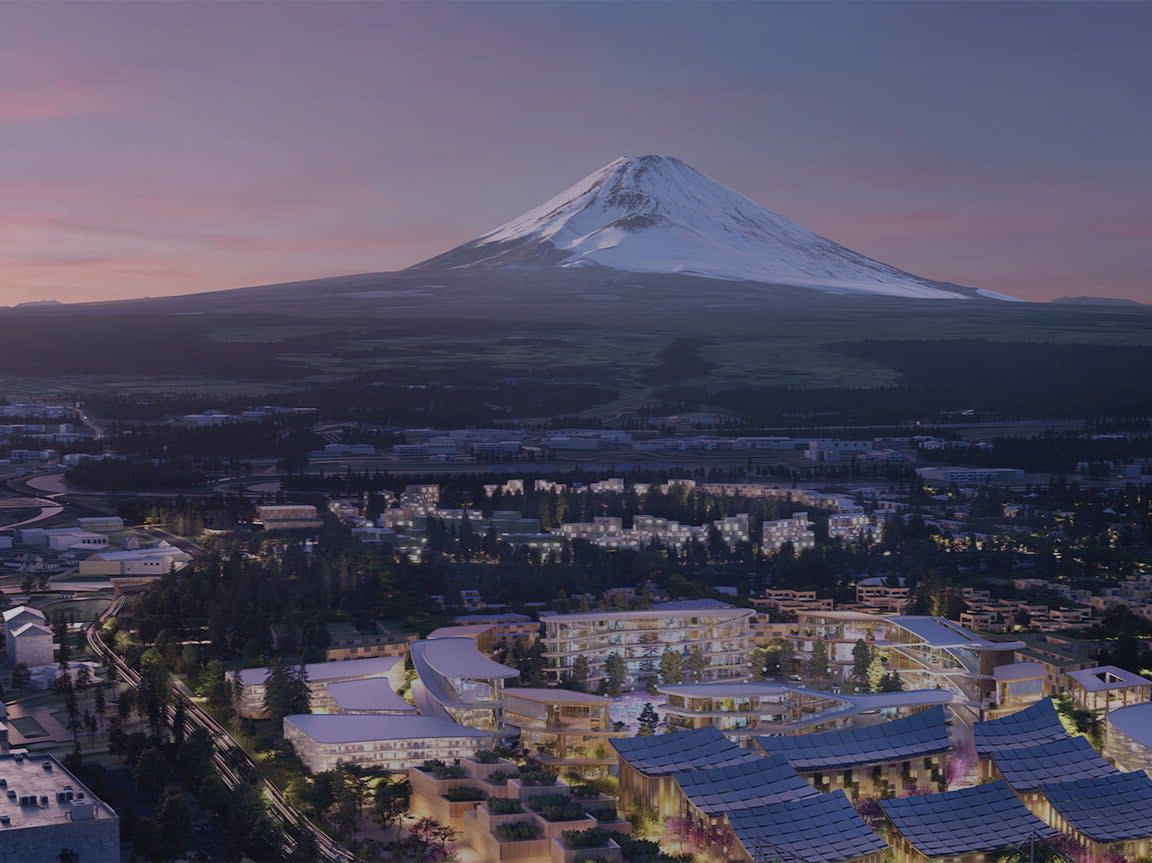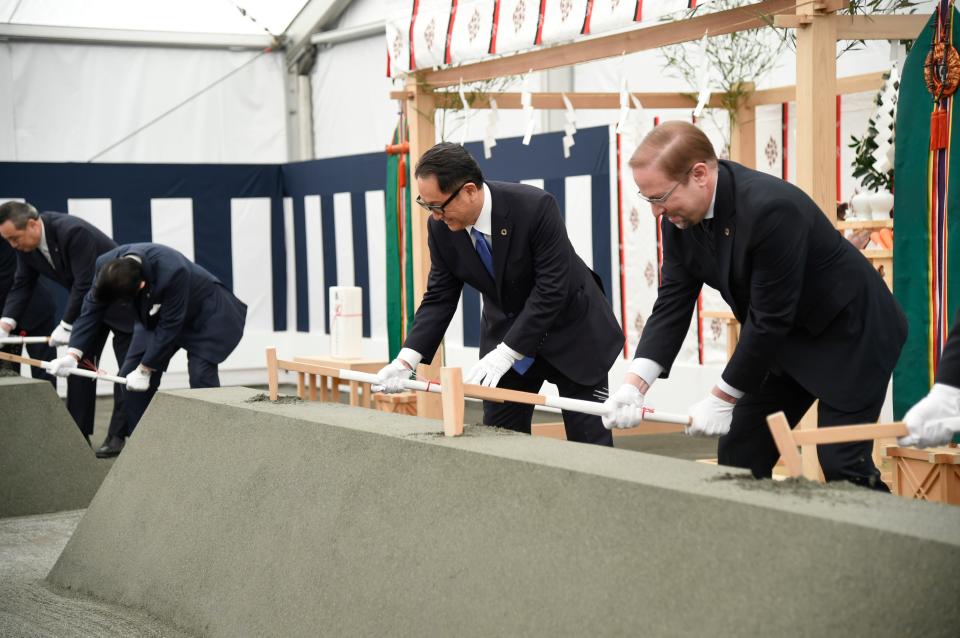Toyota is building a ‘city of the future’ powered by robots and AI for 2,000 staff and families

Representative: The new city designed by Toyota will be situated at the base of Japan’s Mount Fuji, about 62 miles from Tokyo
(Getty Images)Toyota has started constructing a 175-acre smart city in Japan that will work on artificial intelligence and futuristic technologies and serve as a “living laboratory”, the company has announced.
Construction began this week on the project dubbed “Woven City”, at a site at the base of Japan’s Mount Fuji, about 62 miles from Tokyo.
The city is being designed as a testing ground for technologies that could be rolled out across urban environments, including robotics, interconnected smart homes and artificial intelligence.
The company’s president Akio Toyoda broke ground at the site on Tuesday in a ceremony involving local officials of Shizuoka Prefecture, where the new city is located.
Toyota, which first announced the project at CES 2020 in January last year, says the city will have three types of roads which are all linked to each other at the ground level – one thoroughfare for pedestrians, one for pedestrians using personal mobility vehicles like e-scooters, and one dedicated solely to self-driving vehicles. The company said there would be one conventional road running underneath the city to provide goods transportation.
Toyota launched its own self-driving vehicle, the e-Palette, in 2018, and it is expected that they will make up the bulk of the Woven City project’s transport infrastructure. The company has previously described them as “scalable and customisable” for a range of functions include ride-sharing, delivery services and even mobile offices and hotels.
The residents of the Woven City will live in smart homes with a range of integrated robotics systems to assist with daily living and sensor-based artificial intelligence to monitor people’s health and take care of other basic needs, the company said.

The first stage of the project will involve about 360 residents of various age ranges, rising to 2,000 including some Toyota employees and their families, as well as scientists and inventors who will assess the effectiveness of the various technological solutions.
Despite its high-tech plans, Toyota said that “encouraging human connection will be an equally important aspect of this experience”.
“Building a complete city from the ground up, even on a small scale like this, is a unique opportunity to develop future technologies, including a digital operating system for the city’s infrastructure,” Mr Toyoda said in a statement.
“With people, buildings, and vehicles all connected and communicating with each other through data and sensors, we will be able to test connected AI technology… in both the virtual and the physical realms … maximising its potential,” he said.
Read More
Toyota to add electric, plug-in hybrid vehicles next year

 Yahoo News
Yahoo News 
